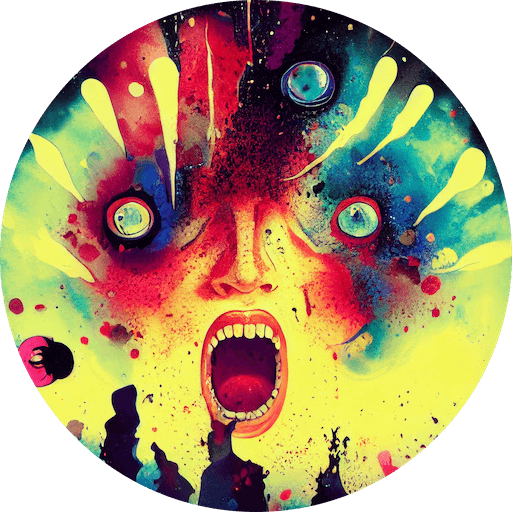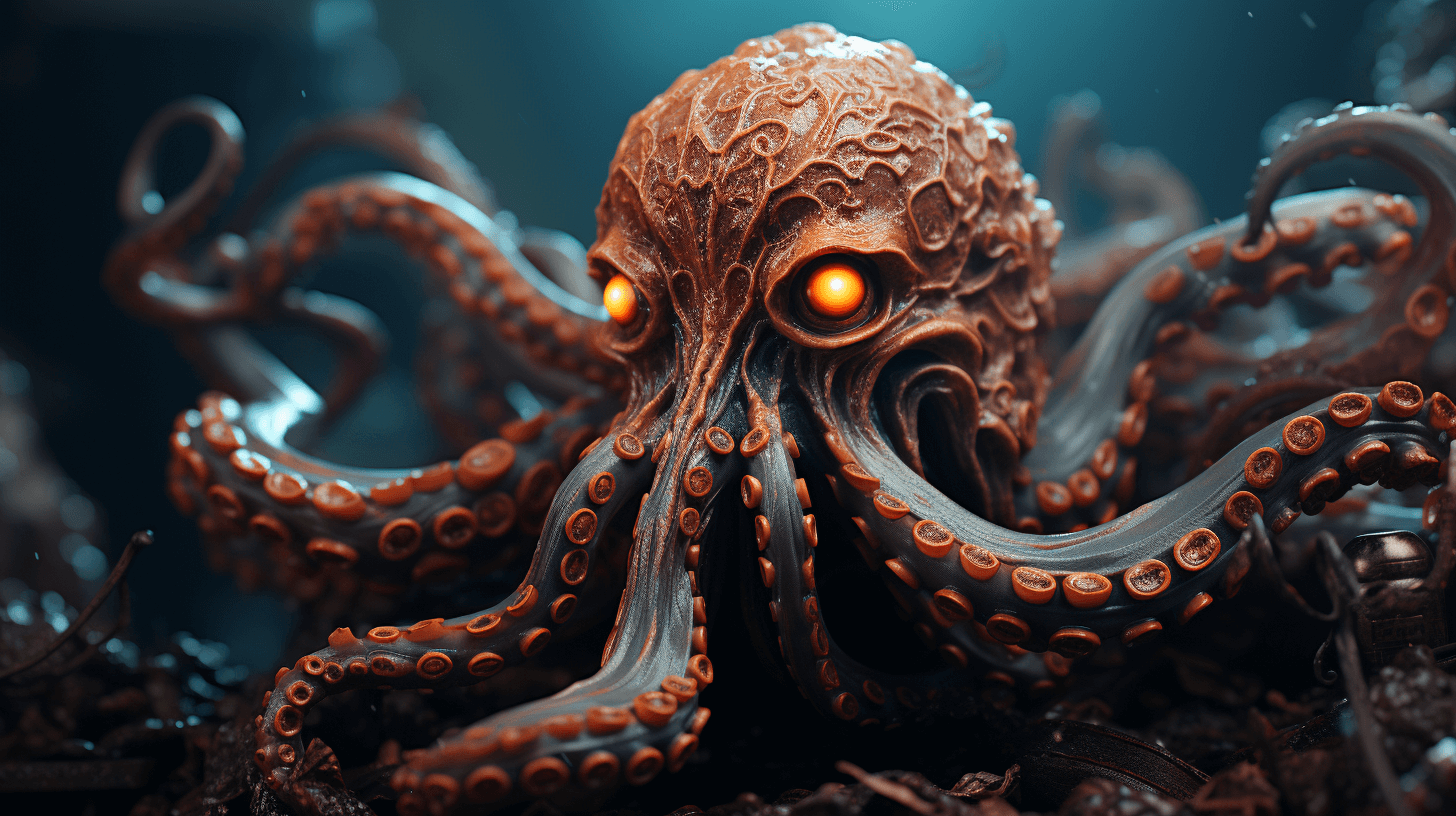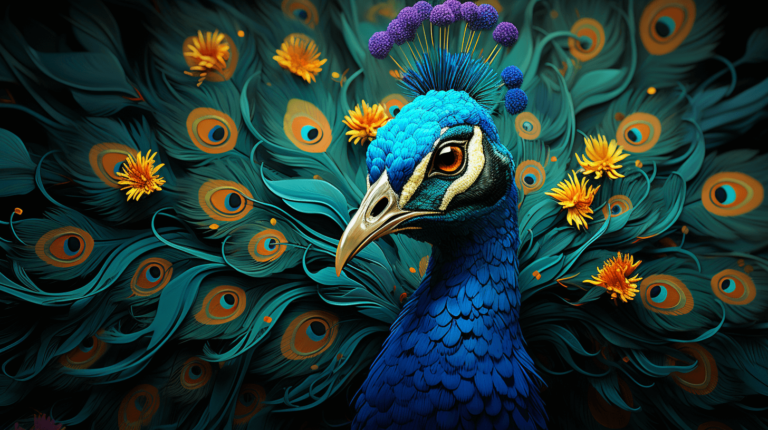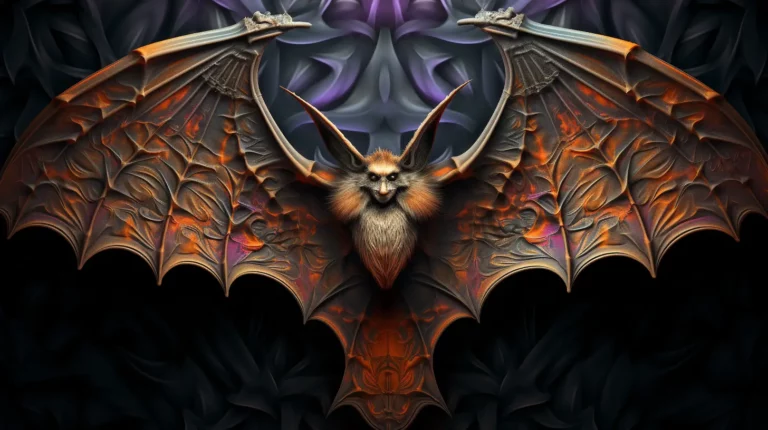Octopus Symbolism
The octopus is a creature of great symbolic depth and complexity across various cultures and disciplines. Here’s an in-depth look at some of the many facets of octopus symbolism:
Intelligence and Complexity:
Octopuses are remarkably intelligent creatures known for their problem-solving abilities. Symbolically, they can represent wisdom, ingenuity, and a complex inner world.
Mystery and Depth:
Octopuses dwell in the depths of the ocean, a realm often associated with mystery, the unconscious, and hidden wisdom. They could symbolize the unfathomable mysteries of life and the depth of one’s subconscious.
Adaptability and Change:
Known for their ability to change color and form, octopuses are powerful symbols of adaptability, transformation, and fluidity. They can blend into their surroundings effortlessly, which may symbolize adaptability or camouflage in emotional or psychological contexts.
Creativity and Flexibility:
The octopus’s eight arms and incredible dexterity make it a symbol of creativity and multitasking. This creature can manipulate objects, explore, and defend itself, all suggesting a talent for juggling multiple tasks and roles.
Manipulation and Control:
The same attributes that make the octopus symbolize intelligence and creativity can, in a different context, imply manipulation or control. The octopus’s arms can symbolize the potential to reach out in multiple directions to manipulate the environment or others.
Emotional Depth and Intuition:
In some cultural and spiritual systems, water animals like the octopus are considered to be deeply intuitive and connected to emotions. The ocean’s depths can symbolize the emotional depths one might explore.
Sensuality and Allure:
The octopus’s fluid movements and unique form can make it a symbol of sensuality and allure. It can navigate through tight spaces and adapt to its environment, much like the fluid nature of attraction and desire.
Resourcefulness and Strategy:
Known for their escape artistry and strategic hunting techniques, octopuses can symbolize resourcefulness and the ability to strategize effectively, whether it’s problem-solving or coping with life’s challenges.
Solitude and Independence:
Generally solitary creatures, octopuses can symbolize the qualities of independence and a self-reliant nature. They thrive on their own, representing those who find strength in solitude.
Cosmic and Spiritual:
The octopus’s appearance can appear almost alien, and in some interpretations, it might symbolize cosmic mysteries or connections to other dimensions. Its spiral-shaped suckers and limbs can also associate it with sacred geometry, a concept in mysticism regarding the geometry in the design of the universe.
Mythological and Folklore Context:
In some cultures and mythologies, octopuses are seen as sea monsters or deities, representing chaos, danger, or mystical wisdom.
Cultural Variations:
In different parts of the world, the octopus can hold various meanings, including as a culinary delicacy, an ecological wonder, or a creature of folklore and myth.
Conclusion
The octopus is an enigmatic creature that has captured human imagination across different cultures, disciplines, and symbolic frameworks. With its numerous arms, unparalleled problem-solving abilities, and mastery of adaptability, the octopus is not merely an animal that roams the depths of the ocean but a potent symbol of myriad human experiences and aspirations.
On one hand, it stands as a symbol of intelligence and complexity, echoing our own quest for wisdom and understanding. Its residence in the deep, enigmatic waters of the ocean makes it an emblem of mystery and depth, inviting us to explore the unfathomable intricacies of life and the hidden recesses of the subconscious mind. The octopus’s ability to adapt, change color, and blend seamlessly with its environment speaks to the human conditions of adaptability, transformation, and fluidity, essential qualities in an ever-changing world.
At the same time, the octopus represents the potential for creativity and multitasking, attributes that are increasingly valuable in a complex society demanding of diverse skills and innovative thinking. Yet, these same virtues can morph into vices, symbolizing manipulation and control, reminding us of the ethical considerations associated with intelligence and power.
Moreover, the octopus serves as an emblem of emotional depth and intuition, reflective of the often underexplored yet profound emotional dimensions of human life. Its sensual and alluring movements may speak to our understanding of desire, attraction, and the complexities of relationships. When it comes to resourcefulness and strategy, the octopus serves as a beacon of effectiveness and adaptability, valuable traits for overcoming life’s multifarious challenges.
The solitary nature of the octopus mirrors the values of independence and self-reliance, virtues that resonate with many who find strength in solitude. On a cosmic level, the octopus invites speculation about mysteries beyond earthly understanding, even serving as a link to spiritual and otherworldly realms in some interpretations.
Not to be forgotten is the octopus’s role in mythology and folklore, where it often holds a place of awe or fear, and its varied cultural interpretations around the world, from being a culinary delight to an ecological marvel.
In conclusion, the octopus is a rich and complex symbol that can be understood in a multitude of ways, each layer adding to the intricate tapestry of meanings that this incredible creature holds. Its symbolism spans the rational and mystical, the mundane and the cosmic, revealing the octopus not just as an object of scientific curiosity but as a nuanced emblem of the complexities of human experience itself.







